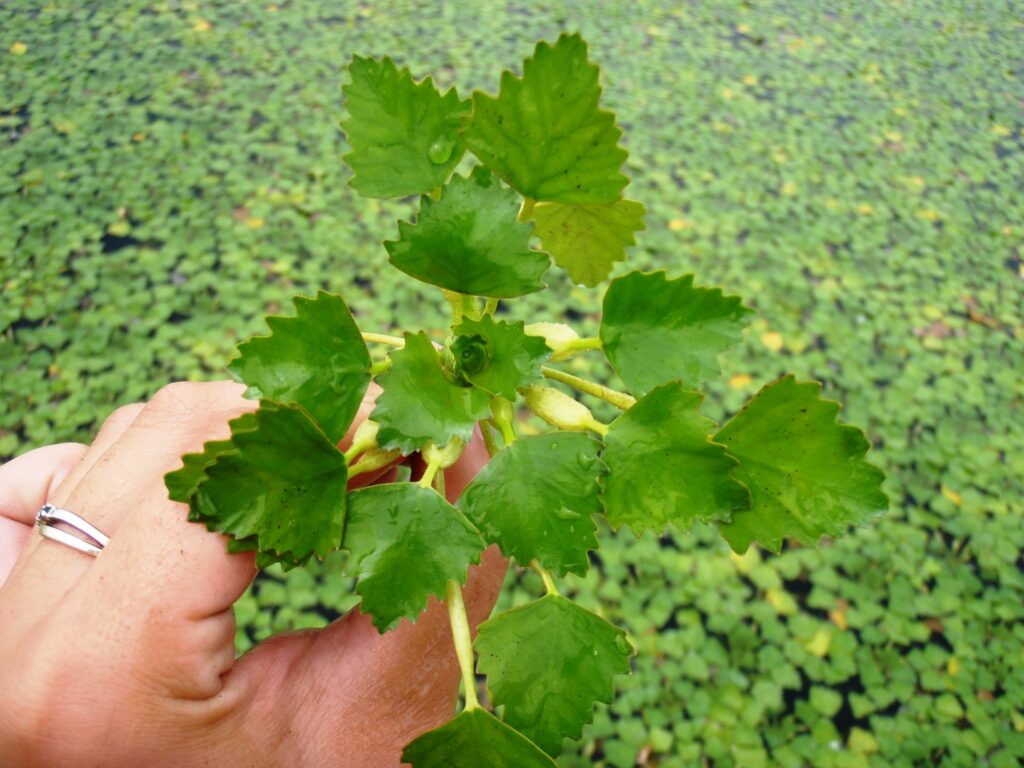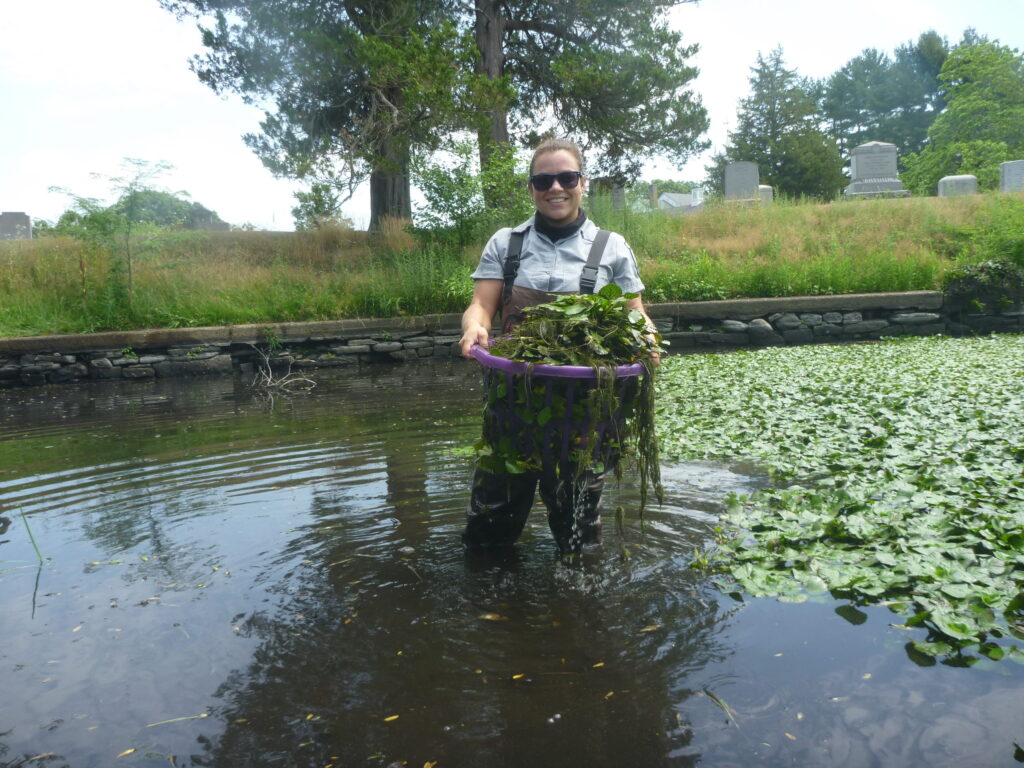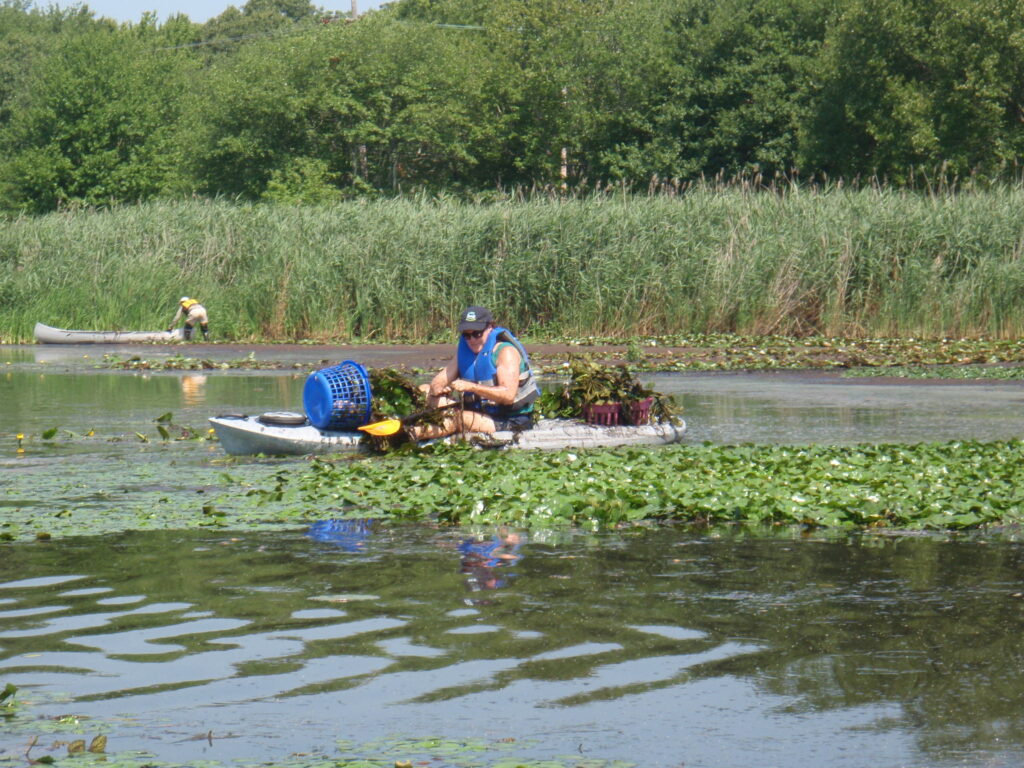Several environmental organizations are banding together in calling for volunteers to help remove invasive water chestnut (Trapa natans) from local ponds in the Blackstone and Ten Mile River watersheds, located in Southeast Massachusetts and Rhode Island. The events will be held throughout the month of June and are open to all members of the community. No experience is necessary.

Water chestnut has been identified in 19 locations throughout Rhode Island and at least 16 waterbodies in Massachusetts. It can impede recreational activities and cause significant economic and environmental harm. The floating plant’s foliage grows quickly and forms dense mats of vegetation that can interfere with paddling, boating, swimming, fishing, and flood storage capacity. If uncontrolled, water chestnut outcompetes native aquatic plants, jeopardizes biodiversity, alters fish and wildlife habitat, and disrupts the ecological balance of aquatic ecosystems. Water chestnut is difficult and costly to control once established, as it can produce large numbers of thorny seeds that can remain viable for several years.
Volunteers can participate in water chestnut removal on the following dates in these locations:
- June 10, Blackstone River (Central Falls, RI), 9 a.m.-1 p.m.
- June 13, 14, Turner Reservoir (East Providence, RI), 5-8 p.m.
- June 17, Lake Quinsigamond (Shrewsbury, MA), 9 a.m.-12 p.m.
- June 17, Turner Reservoir (East Providence, RI), 9 a.m.-12 p.m.
- June 20, Blackstone River (Central Falls, RI ), 4-8 p.m.
- June 24, Whitin Pond (Uxbridge, MA), 9 a.m.-1 p.m.
- June 27, 28, Turner Reservoir (East Providence, RI), 5-8 p.m.
- July 8, Lake Quinsigamond (Shrewsbury, MA), 8-11 a.m.
Volunteers are needed at each event to lift and carry buckets of plants on shore or to hand-pull the weed from the water by paddling kayaks and canoes. Participants are encouraged to bring their own watercraft; however, complimentary canoes and/or kayaks will be provided at most locations for a limited number of registered participants. Motorboat owners can contribute to the effort by ferrying the muddy plants to and from open water to shore where boat ramps are available. Local landowners with compost areas can also assist, by offering space for the removed water chestnut to decay, as it is safe to compost and will no longer continue to spread when out of the water.

Photo courtesy of RIDEM.

Photo courtesy of RIDEM.
To join any of these opportunities, volunteers need to complete the registration form.
Additionally, the initiative is offering an informational webinar for registered participants to learn more about how to identify water chestnut and the importance of managing this aquatic invasive species, on June 6, 3-4 p.m. Please complete the registration form.
The project is funded by a grant to NEIWPCC from the Southeast New England Program (SNEP)’s Watershed Implementation Grants to help restore aquatic habitats. Partners include the Rhode Island Department of Environmental Management (RIDEM), Blackstone Valley Tourism Council (BVTC), Blackstone River Watershed Council (BRWC)/ Friends of the Blackstone, Ten Mile River Watershed Council, Lake Quinsigamond Watershed Association, Town of Uxbridge, the City of Central Falls, RI, the City of East Providence, RI, and the City of Attleboro, MA.